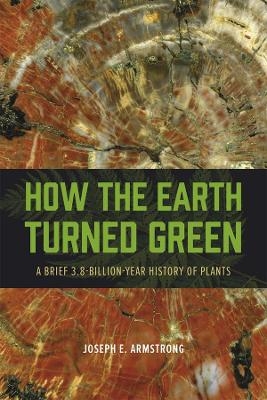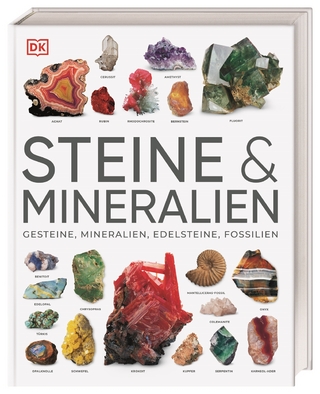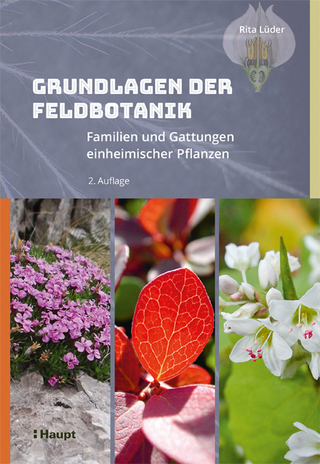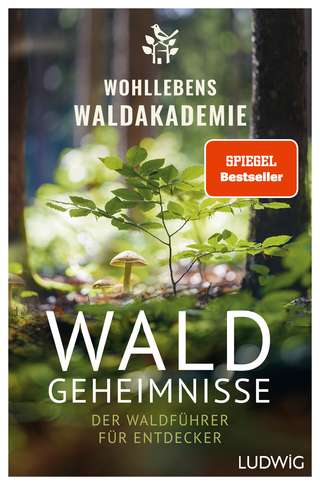
How the Earth Turned Green
A Brief 3.8-Billion-Year History of Plants
Seiten
2015
University of Chicago Press (Verlag)
978-0-226-06977-7 (ISBN)
University of Chicago Press (Verlag)
978-0-226-06977-7 (ISBN)
On this blue planet, long before pterodactyls took to the skies and tyrannosaurs prowled the continents, tiny green organisms populated the ancient oceans. The author traces the history of these verdant organisms, which many would call plants, from their ancient beginnings to the diversity of green life that inhabits the Earth today.
On this blue planet, long before pterodactyls took to the skies and tyrannosaurs prowled the continents, tiny green organisms populated the ancient oceans. Fossil and phylogenetic evidence suggests that chlorophyll, the green pigment responsible for coloring these organisms, has been in existence for some 85 per cent of Earth's long history - that is, for roughly 3.8 billion years. In How the Earth Turned Green, Joseph E. Armstrong traces the history of these verdant organisms, which many would call plants, from their ancient beginnings to the diversity of green life that inhabits the Earth today. Using an evolutionary framework, How the Earth Turned Green addresses questions such as: Should all green organisms be considered plants? Why do these organisms look the way they do? How are they related to one another and to other chlorophyll-free organisms? How do they reproduce? How have they changed and diversified over time? And how has the presence of green organisms changed the Earth's ecosystems?
More engaging than a traditional textbook and displaying an astonishing breadth, How the Earth Turned Green will both delight and enlighten embryonic botanists and any student interested in the evolutionary history of plants.
On this blue planet, long before pterodactyls took to the skies and tyrannosaurs prowled the continents, tiny green organisms populated the ancient oceans. Fossil and phylogenetic evidence suggests that chlorophyll, the green pigment responsible for coloring these organisms, has been in existence for some 85 per cent of Earth's long history - that is, for roughly 3.8 billion years. In How the Earth Turned Green, Joseph E. Armstrong traces the history of these verdant organisms, which many would call plants, from their ancient beginnings to the diversity of green life that inhabits the Earth today. Using an evolutionary framework, How the Earth Turned Green addresses questions such as: Should all green organisms be considered plants? Why do these organisms look the way they do? How are they related to one another and to other chlorophyll-free organisms? How do they reproduce? How have they changed and diversified over time? And how has the presence of green organisms changed the Earth's ecosystems?
More engaging than a traditional textbook and displaying an astonishing breadth, How the Earth Turned Green will both delight and enlighten embryonic botanists and any student interested in the evolutionary history of plants.
Joseph E. Armstrong is an award-winning teacher, professor of botany, head curator of the Vasey Herbarium, and director of the Organismal Biology and Public Outreach Sequence for Biological Sciences Majors, all at Illinois State University.
| Erscheint lt. Verlag | 8.7.2015 |
|---|---|
| Reihe/Serie | Emersion: Emergent Village resources for communities of faith |
| Sprache | englisch |
| Maße | 16 x 23 mm |
| Gewicht | 936 g |
| Themenwelt | Sachbuch/Ratgeber ► Natur / Technik ► Natur / Ökologie |
| Naturwissenschaften ► Biologie ► Botanik | |
| Naturwissenschaften ► Geowissenschaften ► Mineralogie / Paläontologie | |
| ISBN-10 | 0-226-06977-X / 022606977X |
| ISBN-13 | 978-0-226-06977-7 / 9780226069777 |
| Zustand | Neuware |
| Haben Sie eine Frage zum Produkt? |
Mehr entdecken
aus dem Bereich
aus dem Bereich
über 500 faszinierende Gesteine, Minerale, Edelsteine und Fossilien
Buch | Hardcover (2023)
DK Verlag Dorling Kindersley
26,95 €
Familien und Gattungen einheimischer Pflanzen
Buch | Hardcover (2022)
Haupt Verlag
64,00 €


